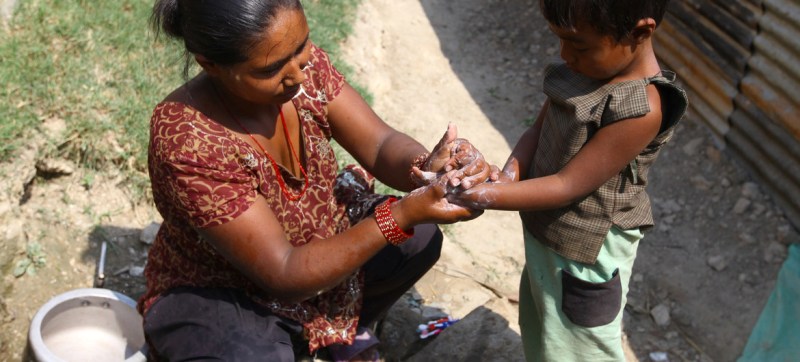 Sanitation
Sanitation Ensure safe and hygienic sanitation for all, UN urges, marking World Toilet Day
New York: The UN is marking World Toilet Day on Thursday, in a bid to reinforce the need for equal access to sanitation for all. More than a quarter of the global population lack basic facilities, and more than three billion people live in homes without basic hand washing facilities, soap and water.
UN Secretary-General António Guterres called the situation “unacceptable” from a moral, economic and health standpoint: “We must ensure everyone, everywhere has access to safe and hygienic sanitation services that provide privacy and dignity.”
World Toilet Day, observed annually on 19 November, was established by the UN General Assembly in 2013, recognizing the importance of sanitation for development and how it impacts the environment.
Safe access to clean toilets is also vital to achieving target 6.2 of Sustainable Development Goal 6 (SDG6), on adequate and equitable sanitation and hygiene for all. It calls for an end to open defecation, paying special attention to the needs of women and girls and those in vulnerable situations, by 2030.
Sanitation and climate change
This year, World Toilet Day is being commemorated under the theme of “Sustainable sanitation and climate change.”
The theme draws attention to the threats to sanitation systems from worsening impacts of climate change, such as floods, droughts and rising sea level. Such events can damage toilets, septic tanks and treatment plants, resulting in contamination of drinking water sources, and spread human waste into communities and croplands, causing deadly diseases.
Ensuring sustainable sanitation that is resilient to climate change, is also vital in the context of the coronavirus pandemic, as toilets, combined with clean water and good hygiene, form a strong defence against COVID-19 and future disease outbreaks.
Water and sanitation – a human right
UN independent human rights experts also issued a joint appeal, calling on governments to ensure that no one is deprived of access to water and other basic supplies, and to prioritize universal access to water and sanitation, as human rights.
The need is even more pressing this year, with the coronavirus pandemic affecting communities everywhere, and the fact that one of the most effective ways to prevent the spread of COVID-19 is practicing proper personal hygiene by washing hands with soap and water – is out of reach for many.
“We take this occasion to appeal, once again, for the governments around the world to implement or reinstate the policy of prohibiting water cuts as well as other basic supplies and to guarantee a minimum essential amount of water and essential basic supplies to those who face difficulties to pay for those services and supplies”, the experts said in a joint statement.
“We reiterate that the minimum core of the human rights to water and sanitation must be guaranteed at all times and under all circumstances”, highlighted the experts.
The Special Rapporteurs, Independent Experts and Working Groups are part of what is known as the Special Procedures of the Human Rights Council. The experts work on a voluntary basis; they are not UN staff and do not receive a salary. They are independent from any government or organization and serve in their individual capacity.
Support Our Journalism
We cannot do without you.. your contribution supports unbiased journalism
IBNS is not driven by any ism- not wokeism, not racism, not skewed secularism, not hyper right-wing or left liberal ideals, nor by any hardline religious beliefs or hyper nationalism. We want to serve you good old objective news, as they are. We do not judge or preach. We let people decide for themselves. We only try to present factual and well-sourced news.







